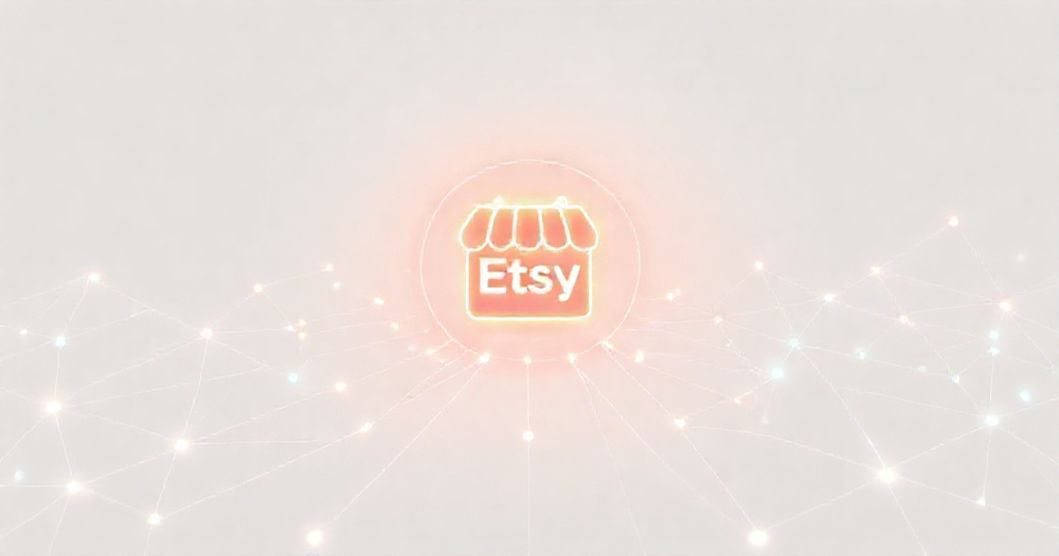In the dynamic world of e-commerce, Etsy sellers continually seek methods to optimize their operations and expand their reach. Etsy integrations provide a powerful pathway to achieve this, connecting your shop with external tools and platforms. These strategic links can automate routine tasks, streamline workflows, and offer deeper insights into your business performance. Understanding and implementing the right Etsy integrations is crucial for any seller aiming for efficiency, scalability, and sustained growth within the competitive marketplace.
Understanding Etsy Integrations: Tools for Growth
Etsy integrations refer to third-party software applications or services that connect directly with an Etsy shop’s existing infrastructure. These connections enable data exchange and functionality enhancements, automating processes that would otherwise require manual effort. From managing inventory across multiple channels to simplifying shipping logistics, these tools are designed to extend Etsy’s native capabilities, empowering sellers to run their businesses more effectively. They are vital for long-term operational success.
Streamlining Inventory: Etsy Stock Management Solutions
Effective inventory management is paramount for Etsy sellers, especially those with diverse product lines or selling across various platforms. Etsy inventory management integrations automatically synchronize stock levels, preventing overselling and ensuring accurate product availability. These tools can track raw materials, finished goods, and even multiple variations of a single item, providing a centralized view of your entire inventory. This automation significantly reduces manual errors and frees up valuable time for creative pursuits or customer engagement.
Efficient Shipping: Optimizing Etsy Order Fulfillment
Shipping and fulfillment represent a significant operational challenge for many Etsy shop owners. Integrations specifically designed for Etsy shipping can dramatically simplify this process. These platforms often allow sellers to generate shipping labels, compare carrier rates, and track packages directly from a single dashboard. By automating these tasks, businesses can reduce shipping costs, improve delivery times, and enhance customer satisfaction through transparent tracking information. This efficiency is critical for maintaining positive buyer experiences.
Financial Clarity: Etsy Accounting & Bookkeeping Connections
Maintaining accurate financial records is essential for any successful business, and Etsy shops are no exception. Etsy accounting integrations seamlessly connect your sales data with popular bookkeeping software, automating transaction recording, expense tracking, and revenue reporting. These tools help sellers understand their profitability, simplify tax preparation, and gain valuable insights into their financial health. Such integrations eliminate manual data entry, reducing the likelihood of errors and ensuring compliance with financial regulations.
Boosting Visibility: Marketing Tools for Etsy Shops
Driving traffic and increasing sales on Etsy often requires robust marketing efforts. Etsy marketing integrations connect your shop with social media platforms, email marketing services, and advertising tools. These connections enable sellers to automatically promote new listings, schedule social media posts, and manage targeted advertising campaigns. By centralizing marketing activities, businesses can reach a broader audience, engage with potential customers more effectively, and ultimately convert interest into sales, enhancing overall shop visibility.
Automating Production: Print-on-Demand (POD) Integrations
For sellers offering customizable products without holding physical inventory, print-on-demand (POD) integrations are transformative. These integrations link an Etsy shop directly to a POD service, automating the production and shipping of items only when an order is placed. This model eliminates the need for upfront investment in stock and storage, making it highly attractive for various product types, including apparel, home decor, and accessories. It significantly impacts profitability by reducing overhead and managing risk.
Customer Engagement: CRM Strategies for Etsy Sellers
Building strong customer relationships is vital for repeat business and positive reviews on Etsy. Customer Relationship Management (CRM) integrations help sellers manage customer interactions, feedback, and purchase history more effectively. These tools can segment customers, automate follow-up communications, and track loyalty programs. By providing a comprehensive view of each customer, CRM integrations enable personalized experiences, fostering greater customer satisfaction and encouraging long-term engagement with your Etsy brand.
Choosing the Right Integrations: Key Considerations
Selecting the most suitable Etsy integrations requires careful consideration of several factors. Sellers should evaluate their specific business needs, such as inventory volume, shipping frequency, and financial complexity. Compatibility with existing systems, ease of use, and the level of customer support offered by the integration provider are also crucial. While pricing structures vary widely, focusing on the return on investment through time savings and increased efficiency is key to making informed decisions for your shop’s future.
Strategic Integration: Elevating Your Etsy Business
Embracing Etsy integrations is a strategic move that can significantly elevate the operational efficiency and growth potential of any Etsy shop. By automating key processes from inventory and shipping to accounting and marketing, sellers can free up valuable time, reduce errors, and gain deeper insights into their business. The right combination of tools empowers entrepreneurs to scale their ventures, enhance customer satisfaction, and maintain a competitive edge in the bustling online marketplace. Investing in these connections is investing in the future of your Etsy success.






